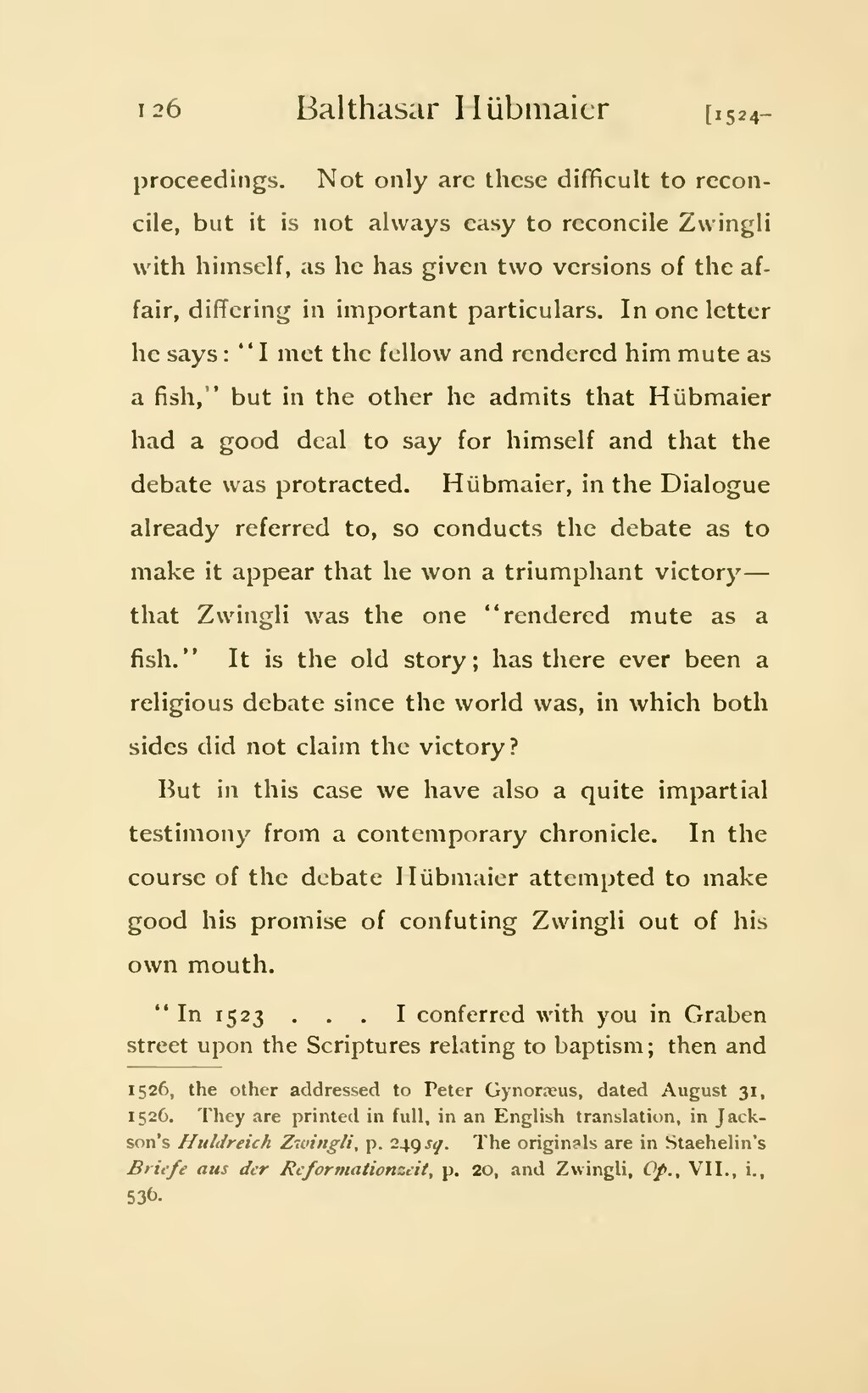proceedings. Not only are these difficult to reconcile, but it is not always easy to reconcile Zwingli with himself, as he has given two versions of the affair, differing in important particulars. In one letter he says: "I met the fellow and rendered him mute as a fish," but in the other he admits that Hübmaier had a good deal to say for himself and that the debate was protracted. Hübmaier, in the Dialogue already referred to, so conducts the debate as to make it appear that he won a triumphant victory—that Zwingli was the one "rendered mute as a fish." It is the old story; has there ever been a religious debate since the world was, in which both sides did not claim the victory?
But in this case we have also a quite impartial testimony from a contemporary chronicle. In the course of the debate Hübmaier attempted to make good his promise of confuting Zwingli out of his own mouth.
1526, the other addressed to Peter Gynoræus, dated August 31, 1526. They are printed in full, in an English translation, in Jackson's Huldreich Zwingli, p. 249 sq. The originals are in Staehelin's Briefe aus der Reformationzeit, p. 20, and Zwingli, Op., VII., i., 536.
